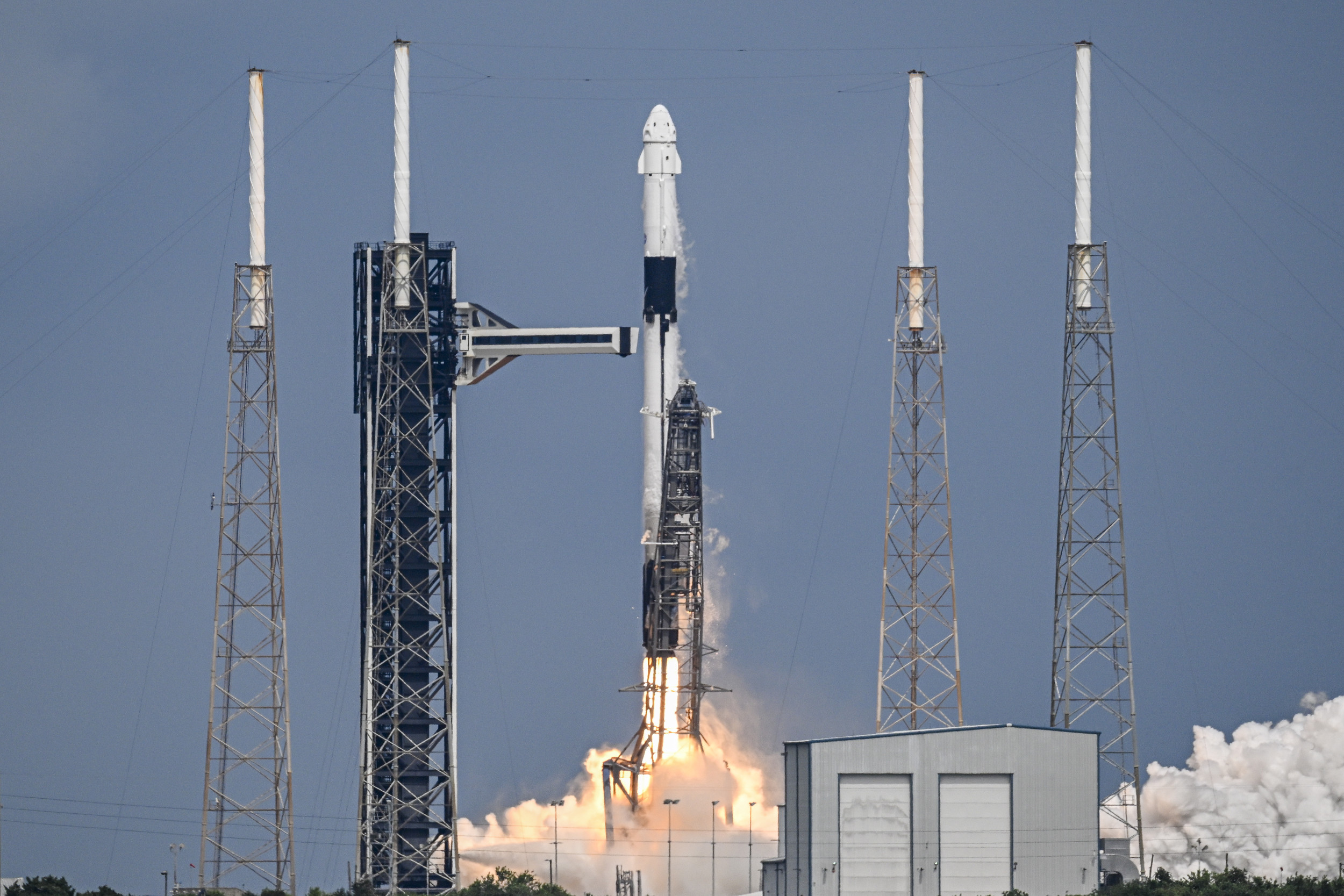
It’s a bumper start to the week for space fans, as SpaceX is set to launch the Koreasat-6A mission into orbit from Florida’s Kennedy Space Center on Monday in addition to 24 more Starlink satellites from the Cape Canaveral Space Force Station later in the day.
The four-hour window for the Koreasat-6A launch opens at 12:07 p.m. ET. SpaceX is scheduled to launch the 24 Starlink satellites within a window beginning at 4:02 ET and ending at 7:44 p.m.
The Starlink launch was originally scheduled for Sunday, but this was pushed back because of “unfavorable recovery weather conditions,” according to a post from SpaceX on X (formerly Twitter).
A Falcon 9 rocket will carry the 24 Starlink satellites spaceward from Cape Canaveral. Eight minutes after launch, the first stage booster of the rocket should, if all goes to plan, land on the SpaceX autonomous drone ship, A Shortfall of Gravitas, in the Atlantic.
Miguel J. Rodríguez Carrillo/Getty
This marks the 12th flight for this booster, which has previously launched the Euclid mission, a space telescope designed to explore the composition and evolution of the dark universe, as well as several Starlink deployments.
The Falcon 9’s upper stage will continue carrying the 24 Starlink satellites to low Earth orbit, deploying them there about 65 minutes after liftoff.
The launch follows the successful deployment of 23 Starlink satellites on November 7 and a further 20 on November 9. The total number of Starlink satellites in orbit now stands at over 7,100, according to the satellite tracking service Orbiting Now.
Koreasat-6A will replace the existing Koreasat-6 satellite and provide television broadcasts across South Korea. It will be stationed in geostationary orbit, meaning the satellite will move at the Earth’s rotational speed, allowing it to stay fixed above a specific point on the surface.
A little less than eight minutes after liftoff, the first stage booster for the Koreasat-6A mission will return to Florida for a touchdown at Landing Zone 1 at Cape Canaveral Space Force Station.
This will be the 23rd flight for this Falcon 9 first stage booster supporting this mission, two of which have been crewed missions sending astronauts to the International Space Station.
How Do I Watch the SpaceX Launch?
Both of Monday’s launches will be streamed online, with broadcasts beginning shortly before liftoff.
The Koreasat-6A mission is scheduled for launch at 12:07 ET, with broadcasting occurring 15 minutes before launch, according to the SpaceX website. The launch will be shown on the company’s website and its X channel.
Similarly, the Starlink mission, which is scheduled for launch at 4:02 p.m. ET, will be broadcast on the website and X, with viewers able to tune in five minutes before liftoff.
Do you have a tip on a science story that Newsweek should be covering? Do you have a question about SpaceX? Let us know via science@newsweek.com.
